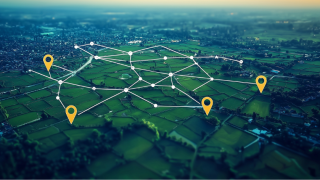FiBrasil is present in 1.6 million households across 34 cities at the launch of operations. By the end of 2021, it expects to cover 500,000 additional households.
Its first customer, Telefônica Brasil's Vivo, has signed a 10-year contract that will extend its reach to 24 million Brazilian households by the end of 2024.
Telefónica Group and CDPQ confirmed the venture in March.
CDPQ invested approximately R$1.8 billion ($315 million) in the JV. When it was announced, CDPQ's EVP and head of infrastructure Emmanuel Jaclot, said: “CDPQ is thrilled to establish a joint venture with Telefónica, one of the world's leading telecommunications service providers, to accelerate the delivery of next-generation fibre optic infrastructure to over 5 million Brazilian homes.
“This transaction is an opportunity to further diversify our infrastructure portfolio and demonstrates CDPQ's ongoing interest for Brazil and the wider Latin America region, where we see opportunities in a variety of sectors," Jaclot continued.
As part of its business model, FiBrasil allows its clients to reach their customers with lower capital requirements and shorter time-to-market, enabling them to replace the risk of a high initial investment for a less capital intensive model, speeding up fiber coverage in a country of continental dimensions. Neutral fiber networks represent a concrete opportunity to accelerate the population's access to ultra-high-speed internet to all locations in Brazil.
Telefónica Group and CDPQ each own a 50% stake of FiBrasil, in a co-controlling governance model. Telefónica Group's 50% stake is held through Telefônica Brazil (Vivo) and Telefónica Infra, the company’s infrastructure unit, which hold a 25% stake each.
The new company has a fully independent team, led by a CEO and an executive body, counting more than 150 employees.





